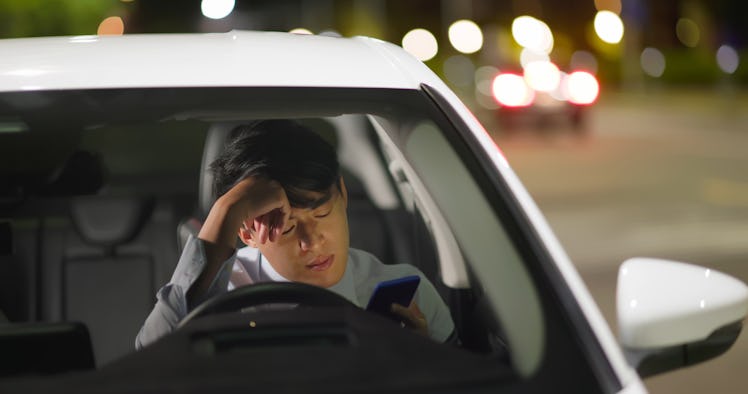How Seasonal Affective Disorder Impacts Men
Seasonal affective disorder is thought to disproportionately impact women. But that may just be because guys aren't getting help.

Seasonal affective disorder is a form of depression tied to the change of the seasons. It usually begins in autumn and continues through winter, until spring mercifully lifts the veil. Men and women can both fall victim to seasonal depression, but women are far more likely to report the condition and seek help. So the harmful misconception—that seasonal affective disorder doesn’t affect men—persists, in both the minds of the general public and in the scientific literature.
It’s really not a seasonal depression problem; it’s a systemic mental health concern. Because while there is evidence that women are more prone to depression than men (seasonal or otherwise), there are strong indications that this gender gap would tighten or even vanish if men bothered reporting their symptoms and visiting mental health professionals when they’re feeling blue. It doesn’t help that men tend to display different symptoms than women when they are depressed. A man may avoid seeking help if what he is feeling doesn’t sound like depression.
“Both men and women get depression but their willingness to talk about their feelings may be very different,” according to the National Institute of Mental Health. “Depression symptoms for men and women may be very different as well. For example, some men with depression hide their emotions and may seem angry, irritable, or aggressive, while many women seem sad.”
The tragic result is that, even when men do seek help, they often do not get it. That may be because doctors are more likely to suspect depression in women, or because men present with atypical depressive symptoms, such as aggression. “Gender bias occurs in the treatment of psychological disorders,” according to the World Health Organization. “Doctors are more likely to diagnose depression in women compared with men, even when they have similar scores on standardized measures of depression or present with identical symptoms.”
When men don’t get the help that they need, for whatever reason, seasonal affective disorder and depression can spiral from a listless feeling in the winter into full-blown aggression and self-harm. So ensuring that men are diagnosed and treated, too, is a public health priority. Unfortunately, there are no easy solutions.
The first step is educating men, explaining that there is nothing emasculating about having a frank conversation with a doctor. Besides, seasonal affective disorder—and, indeed, depression in general—is nothing to be ashamed of. It’s actually quite common. Studies estimate that between 4 and 20 percent of the population has some form of seasonal depression. Crucially, we need to raise the next generation of young men to feel that taking care of their physical and mental health is not only important, but masculine.
If you suspect that you, or a loved one, is experiencing the symptoms of depression this winter, call the National Helpline for mental health concerns. It’s free, confidential, and available 24/7.
This article was originally published on